Filter by
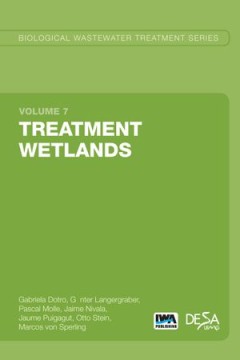
Treatment Wetlands
Treatment Wetlands is the seventh volume in the Biological Wastewater Treatment series, which gives a state-of-the-art presentation of the science and technology of sewage treatment. The major variants of wetland systems are covered in this volume, namely: (i) horizontal flow wetlands; (ii) vertical flow wetlands; (iii) French vertical flow wetlands; (iv) intensified wetlands; (v) free water su…
- Edition
- volome 7
- ISBN/ISSN
- 9781780408767
- Collation
- -
- Series Title
- -
- Call Number
- -
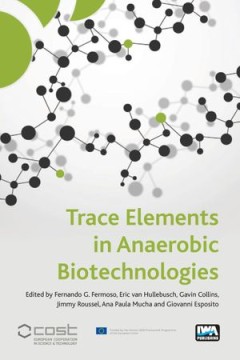
Trace Elements in Anaerobic Biotechnologies
The use of trace elements to promote biogas production features prominently on the agenda for many biogas-producing companies. However, the application of the technique is often characterized by trial-and-error methodology due to the ambiguous and scarce basic knowledge on the impact of trace elements in anaerobic biotechnologies under different process conditions. This book describes and defin…
- Edition
- -
- ISBN/ISSN
- 9781789060225
- Collation
- -
- Series Title
- -
- Call Number
- -
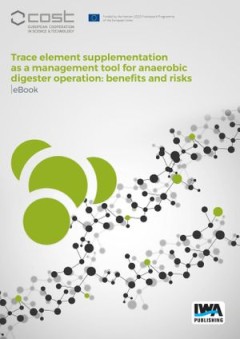
Trace element supplementation as a management tool for anaerobic digester ope…
This guide is intended for use by industry stakeholders, decision-makers and digester operators in navigating the topic of trace element (TE) supplementation as a management tool for anaerobic digester operation. The subject is the application of TE, and supplementation regimes in anaerobic waste-conversion biotechnologies, such as biogas digesters. TE is a term used to include a wide range of …
- Edition
- -
- ISBN/ISSN
- 9781780409429
- Collation
- -
- Series Title
- -
- Call Number
- -
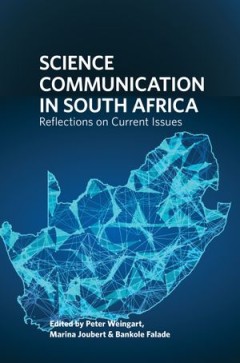
Science Communication in South Africa
Why do we need to communicate science? Is science, with its highly specialised language and its arcane methods, too distant to be understood by the public? Is it really possible for citizens to participate meaningfully in scientific research projects and debate? Should scientists be mandated to engage with the public to facilitate better understanding of science? How can they best communicate t…
- Edition
- -
- ISBN/ISSN
- 9781928502043
- Collation
- -
- Series Title
- -
- Call Number
- -
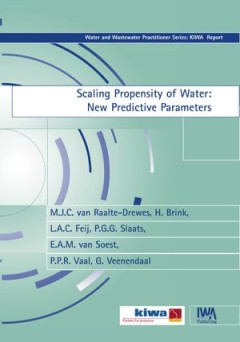
Scaling Propensity of Water
The commonly used Saturation Index calculated at 10°C (SI10) is not suitable for practical situations. New parameters have been developed for simple and rapid analysis of calcium carbonate precipitation (scaling) phenomena which occur during the heating of drinking water: TPCC90 (Theoretically Precipitable Calcium Carbonate at 90°C) SI90 (Saturation Index at 90°C) NI (Nucleation Index) PPCC …
- Edition
- -
- ISBN/ISSN
- 9781780402567
- Collation
- -
- Series Title
- -
- Call Number
- -
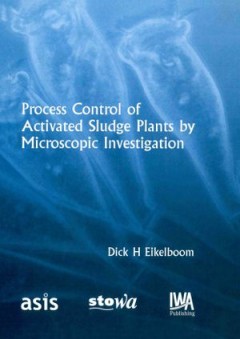
Process Control of Activated Sludge Plants by Microscopic Investigation
Process stability and final effluent quality largely depend upon the composition of the biomass in an activated sludge plant. Operational problems such as bulking and scum formation occur when the wrong micro-organisms are dominating the sludge population. Microscopic sludge investigation is therefore essential for process control and stable plant operation. The manual outlines the theoretical …
- Edition
- -
- ISBN/ISSN
- 9781900222297
- Collation
- -
- Series Title
- -
- Call Number
- -
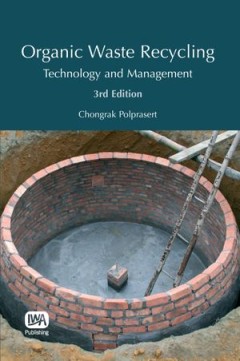
Organic Waste Recycling
This book covers the principles and practices of technologies for the control of pollution originating from organic wastes (e.g. human feces and urine, wastewater, solid wastes, animal manure and agro-industrial wastes) and the recycling of these organic wastes into valuable products such as fertilizer, biofuels, algal and fish protein and irrigated crops. Each recycling technology is described…
- Edition
- Edisi 3
- ISBN/ISSN
- 9781780402024
- Collation
- -
- Series Title
- -
- Call Number
- -
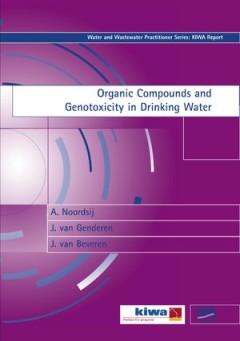
Organic Compounds and Genotoxicity in Drinking Water
Until recently only lipophilic compounds were analysed in any research on the occurrence of mutanogenic and carcinogenic compounds in water. They were isolated using XAD-resins. They contain approximately half of the total organic material present in water. A clear mutanogenic effect was demonstrated for these compounds using Amestest. The hydrophilic fraction of the organic material was diffic…
- Edition
- -
- ISBN/ISSN
- 9781780402598
- Collation
- -
- Series Title
- -
- Call Number
- -
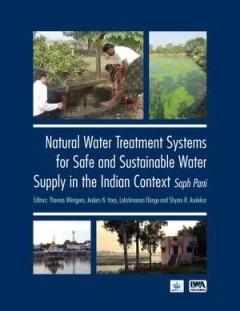
Natural Water Treatment Systems for Safe and Sustainable Water Supply in the …
Natural Water Treatment Systems for Safe and Sustainable Water Supply in the Indian Context is based on the work from the Saph Pani project (Hindi word meaning potable water). The book aims to study and improve natural water treatment systems, such as River Bank Filtration (RBF), Managed Aquifer Recharge (MAR), and wetlands in India, building local and European expertise in this field. The proj…
- Edition
- -
- ISBN/ISSN
- 9781780407104
- Collation
- -
- Series Title
- -
- Call Number
- -
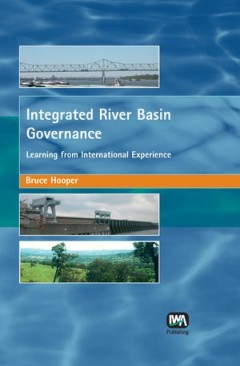
Integrated River Basin Governance
Integrated River Basin Governance - Learning from International Experience is designed to help practitioners implement integrated approaches to river basin management (IRBM). It aims to help the coming generation of senior university students learn how to design IRBM and it provides current researchers and the broader water community with a resource on river basin management. Drawing on both pa…
- Edition
- -
- ISBN/ISSN
- 9781780402970
- Collation
- -
- Series Title
- -
- Call Number
- -
 Computer Science, Information & General Works
Computer Science, Information & General Works  Philosophy & Psychology
Philosophy & Psychology  Religion
Religion  Social Sciences
Social Sciences  Language
Language  Pure Science
Pure Science  Applied Sciences
Applied Sciences  Art & Recreation
Art & Recreation  Literature
Literature  History & Geography
History & Geography